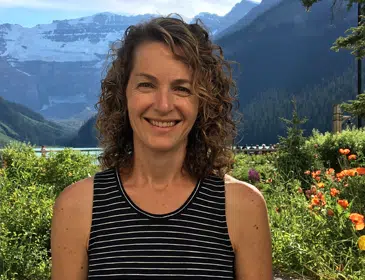PUBLISHED: 1st September 2017

I consider myself lucky. I learned that the BRCA mutation was being carried in my family through my father’s first cousins. I am forever grateful to these two women who were diagnosed with cancer in their 40s (one breast, one ovarian), who took the step of genetic testing and the most important step for me of sharing this valuable knowledge with our extended family. This news shouldn’t have been a huge surprise – my father’s mother died of ovarian cancer in her mid 40s, and our family is of Ashkenazi Jewish descent. However, I had never had a doctor ask me about this family history, and even when I did share it there was much misinformation about only focusing on cancer history in first degree relatives (parents and siblings). As my father only had brothers, the closest I would get to a female relative on that side was a grandparent or my father’s cousins.
So again, I consider myself lucky. Although I had two melanomas before my genetic testing, I have been spared the significant cancers that have taken the lives of women in my family. Without hesitation, I chose to have a prophylactic mastectomy and oophorectomy, to ensure that I can stay present and healthy for my family, including my children who were born just before and after I had genetic testing.
After I finished my surgeries and as I had more time to think (as the kids got older), I started to look for resources. I had so many questions – what to do now that I have had prophylactic surgeries? What does this mean for my kids and other family members? I found FORCE online and became active on the message boards and in the vibrant FORCE Peer Support Group in Chicago. When I moved to Tampa, I knew I would have a special community there waiting for me in FORCE. After a few years of attending meetings, I wanted to do more. It was the right time in my life – my kids needed less time from me and I was working part time in my own business. I have always thrived on helping and connecting people, lending a hand or listening ear, and sharing knowledge and information. Getting involved in a volunteer role with FORCE has been satisfying beyond my imagination. I started as a Peer Navigator, and more recently became a Peer Support Group leader where I can support women in my local community as well.
I have always considered myself lucky to be a part of the FORCE community, from the knowledge that I carry a mutation and can reduce my own cancer risk, to the latest research FORCE provides at annual conferences and via the website, to the person to person connections through the Peer Navigator Program and Peer Support Groups. My focus now is supporting other individuals, and supporting FORCE to ensure the next generation of mutation carriers have better choices and options than I did.